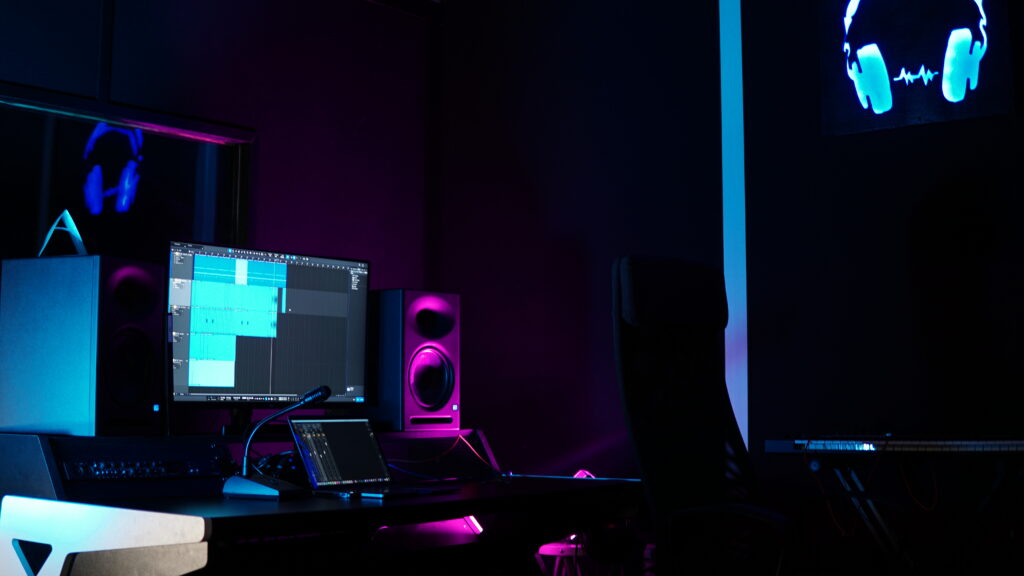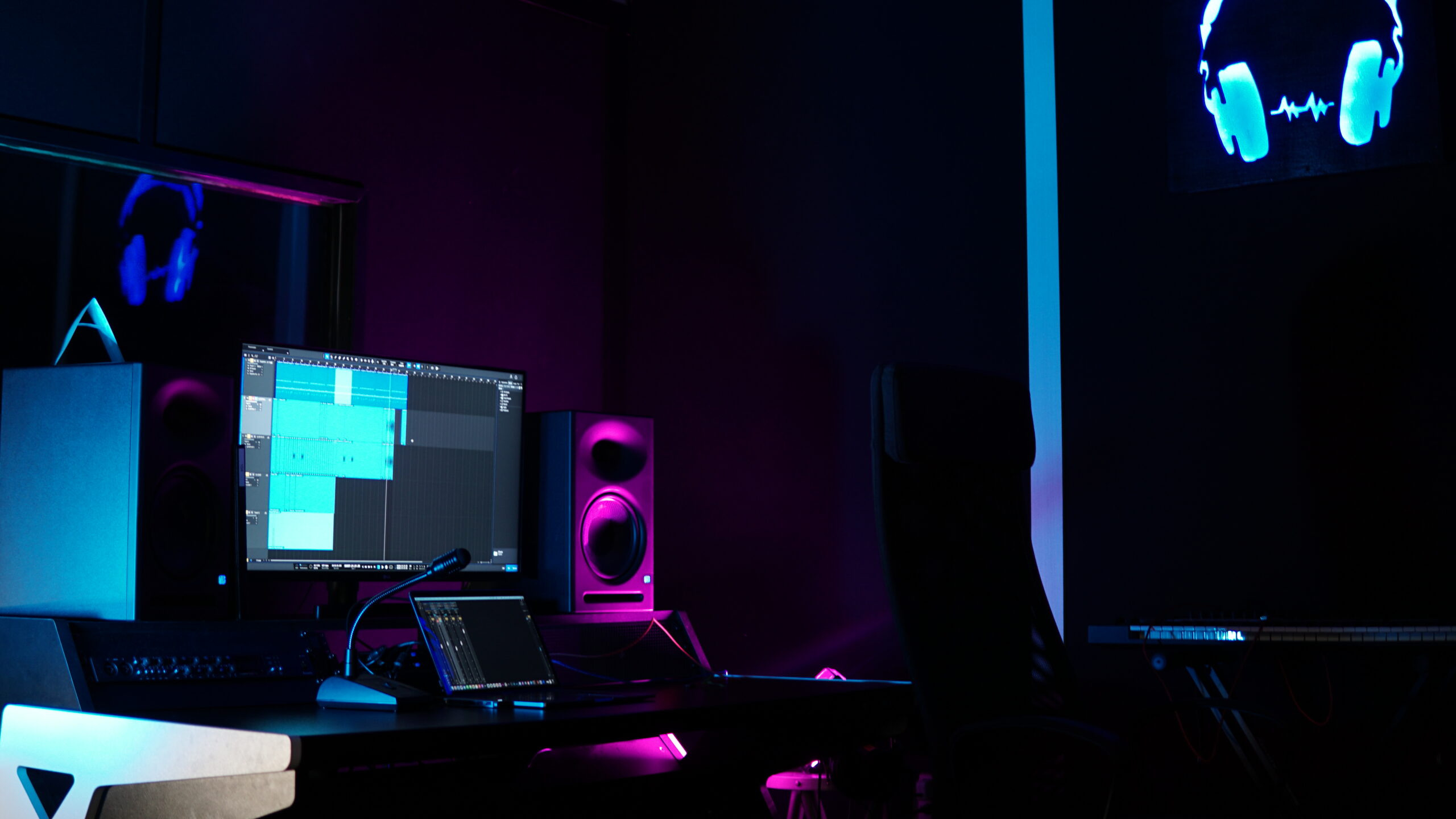You’ve poured your heart and soul into writing the perfect song – incredible melodies, lyrics that resonate, the whole package. Now comes the exciting next step: recording it in a professional music studio.
This is a thrilling moment, but it can also be a little daunting. The studio environment, with its array of equipment and technical jargon, might feel intimidating at first. This guide will walk you through what you can expect during your first session, helping you feel confident and prepared to capture your musical vision.
Are you ready?
Before You Even Walk In the Door: Preparation Is Key
The success of your studio session hinges significantly on preparation. Think of it like preparing for a big performance – the more you rehearse, the smoother the show goes.
Here’s what you should do before your first session:
Know Your Song Inside and Out: This seems obvious, but it’s crucial. You should be able to play your song flawlessly, know your lyrics perfectly, and clearly understand the arrangement. Any uncertainty will eat away at your precious studio time. Practice until you’re comfortable, even over-rehearse.
Have a Clear Vision: Before you book the studio, have a solid idea of what you want to achieve. Do you want a raw, live recording? A polished, produced sound? Do you have specific sonic ideas, like reverb or delay on certain instruments? The more direction you can give your engineer, the better the results will be.
Choose Your Studio Wisely: Research studios in your area. Read reviews, listen to examples of their work, and consider their pricing and equipment. Our music studios in Houston, for example, provide a comfortable atmosphere with experienced engineers who can guide you through the process. Don’t hesitate to contact studios and ask questions before booking. Don’t need an engineer? No problem. You can book the studios without engineers as well.
Gather Your Materials: This includes your instruments (in perfect working order!), cables, sheet music (if needed), and any backing tracks or reference tracks you might want to use. Having everything organized will save you time and frustration in the studio.

Communicate with Your Engineer: During the session, communicate to your engineer and discuss your vision. Share your reference tracks, explain your musical style, and ask any questions you might have. This communication helps build rapport and ensures everyone is on the same page.
The Main Event: Recording Time
Now that everything is set up, it’s time for the main event: recording your music. Here’s what to expect during the recording phase.
Multiple Takes: Don’t worry if you don’t nail it in one take. It’s normal (and expected) to do multiple takes to capture the best performance. The engineer will record each take, and you can review them later to select the best versions. Some artists even use a combination of takes to create a polished final product.
Feedback from the Producer or Engineer: During your recording studio session, the producer or engineer may give feedback on your performance, suggesting small tweaks to timing, pitch, or energy to enhance the recording. This feedback is there to help you sound your best, so be open to suggestions.
Recording in Layers: Depending on the song and your approach, you might record different elements separately. For example, you might lay down the instrumental tracks first and then record the vocals. This allows for more control in the final mix and ensures that each layer of the song is as strong as possible.
Breaks Between Takes: Recording can be mentally and physically draining, so expect to take short breaks between takes or sections. Use this time to review any feedback, rest your voice, or just reset your focus.
Listening and Feedback: After each take (a single performance), you’ll listen back and provide feedback. It’s a collaborative process. The engineer will offer suggestions, and you can express your preferences. This ensures the final recording matches your vision.
Editing and Mixing (Possibly): Depending on your booking, some editing and mixing might happen during the session. Otherwise, this is a separate process. The engineer will clean up mistakes, adjust levels, add effects, and generally make your recording sound amazing. You’ll have opportunities to review and provide feedback.
Wrapping Up the Session
At the end of your session, you’ll review the day’s work with the team and make sure everything you want to accomplish has been completed.
Review the Rough Mixes: The engineer may prepare a rough mix of your recordings to give you an idea of what the final product could sound like. Rough mixes are unpolished versions that allow you to hear all the recorded elements together.
Plan for the Next Steps: If additional sessions are required, this is the time to plan them. You might need another day to add harmonies, record additional instruments, or work on the final mix and mastering.
Takeaways and Feedback: Before you leave, the team may provide some feedback on the session and suggest any adjustments for future sessions.
How to Communicate Your Vision Effectively
One of the most important aspects of a successful studio session is clear communication with your studio team. Whether it’s the producer, engineer, or any assistants involved, the more effectively you share your vision, the better they’ll be able to help you achieve it.
Be Specific About Your Sound: If there’s a particular vibe, style, or influence you’re going for, don’t hesitate to share that. Reference specific artists, songs, or genres that inspire you. For instance, if you want your vocals to have a raw, live feel, mention a song with a similar production style as a reference.
Describe the Emotions You Want to Convey: Sometimes, it helps to describe the feeling behind the music. Let the team know if you want the track to feel uplifting, moody, powerful, or intimate. They can adjust elements like reverb, instrument levels, or EQ to enhance the emotion you’re going for.
Provide Visuals or Demos: If you’ve recorded any demo tracks at home or have visuals (like mood boards) that represent your song’s concept, these can be incredibly useful. Engineers and producers often find it helpful to see visuals, as it can provide insight into the atmosphere or story behind your music.
Final Thoughts: Finding The Right Music Studio Is Important
Choosing the right music studio can make all the difference in bringing your creative vision to life. It’s not only about having access to quality equipment but also about finding a space that feels inspiring, supportive, and suited to your needs. Every studio has its own unique atmosphere and offerings, so take the time to explore your options and select a location where you feel comfortable, focused, and motivated.
If you’re in the Houston area, Band Barracks is an exceptional choice for musicians, producers, and DJs alike. Conveniently located off I-45 near the University of Houston and the Gulfgate Mall, we provide easy freeway access, making our music studio accessible from nearly anywhere in the city. But despite our prime location, our studio offers a private, secluded feel with high levels of security from the moment you enter its gates, the studio provides both privacy and peace of mind.
Band Barracks offers a range of studios for rent, including production studios, rehearsal studios, and DJ studios, allowing artists to select the space that best fits their needs. For those looking to produce high-quality recordings without the expense of owning a studio, our Houston music studio offers an affordable option with flexible features. In addition to renting a studio, you have the option to livestream your session or receive an engineered mix—adding even more value to your experience.
Our team understands the critical importance of sound quality, having experienced a variety of studios firsthand. Working with acoustic professionals, we have designed studios with musicians in mind, focusing on optimal noise-proofing, superior sound dampening, and an inspiring environment that nurtures creativity. Here’s what sets Band Barracks apart:
- Soundproofed, Purpose-Built Spaces: Each rehearsal studio is tailored for sound quality, with features like echo elimination, sound booths, and specialized lighting to enhance the recording experience.
- Custom Doors to Prevent Sound Bleed: The custom doors are designed to contain sound, preventing bleed into hallways and ensuring privacy for each artist.
- Ample Power and Lighting: Larger rooms are equipped with two individual 20-amp circuits, providing plenty of power for your gear. The premises are well-lit and secure, adding an extra layer of comfort.
- Convenient Amenities: The on-site retail area offers sandwiches, snacks, beer, wine, and seltzer, making it easy to take a quick break or refuel between sessions.
Band Barracks has become a creative hub where musicians can collaborate, produce, and connect with others in the music community. Musicians have traveled from cities like Los Angeles, New York, and Nashville to experience Band Barracks. Locally, it’s close to The Woodlands, Katy, Sugar Land, Pearland, and many other Texas cities, welcoming musicians from a wide variety of genres, including pop, country, jazz, rock, rap, hip-hop, and classical.
If you’re searching for a music studio in Houston and surrounding areas that offers a top-notch experience, Band Barracks is a fantastic place to start. With its sound-focused design, supportive community, and flexible studio options, Band Barracks is dedicated to helping you create music you’re proud of. Whether you’re an established artist or just beginning your journey, Band Barracks provides a space where creativity can flourish and connections can grow.
Visit our site or contact us at +1 832-534-0747 for more information. We’re so excited to welcome you here!

